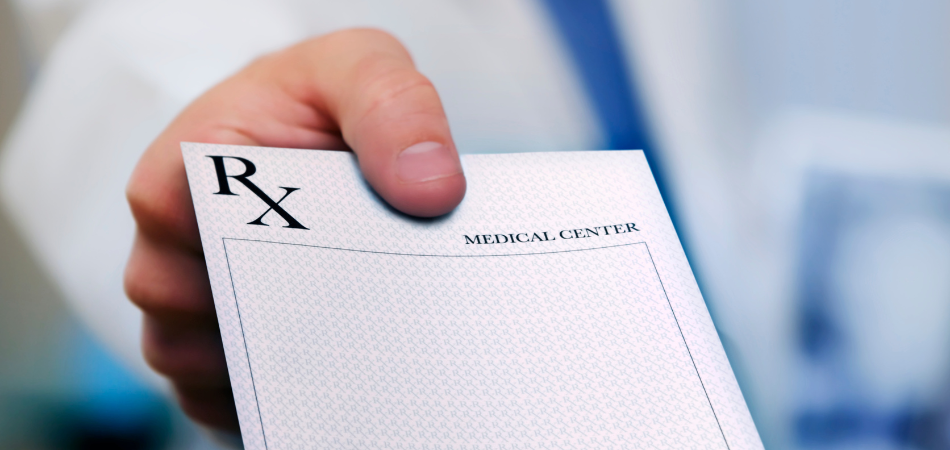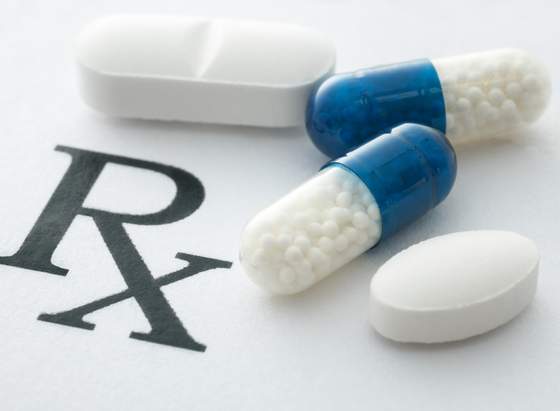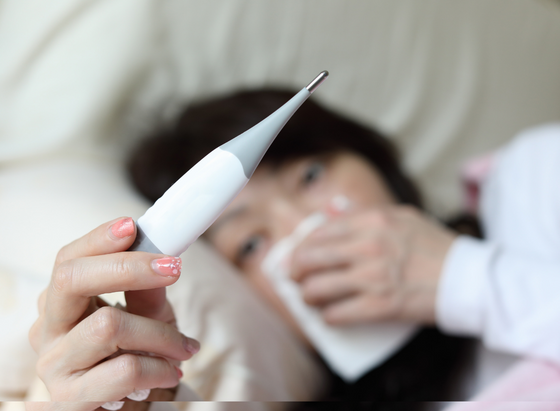Prescription drug addiction

Written by:

Medically Reviewed by:
This Page was last reviewed and changed on May 7th, 2024
Prescription drug addiction can arise from an innocuous place, with individuals turning to medically controlled substances prescribed by their doctor to alleviate symptoms of a genuine health concern. Unfortunately, however, what many people do not know is that prescription medications carry a high potential for drug addiction, which can pose a genuine threat to an individual’s health and wellbeing if not properly addressed.
On this page, we will look at some of the harms that can come from prescription drug abuse, outlining some signs and symptoms to help in identifying prescription drug addiction, and explore ways to seek help if you or a loved one needs support.

What is prescription drug addiction?
Addiction to prescription drugs occurs when you become physically and emotionally reliant on the medication. Often stemming from trauma, you will feel compelled to abuse prescription medication despite the negative impact it has on your life.
Antidepressant addiction
Antidepressants are a class of medication designed to alleviate symptoms of depression, a condition characterised by persistent sadness, lack of interest in activities and an overwhelming sense of despair.
Benzo addiction
Benzodiazepines are known for their addictive nature. Long term use of benzodiazepines can lead to tolerance and dependency, which make them difficult to give up. Click on the button below to learn more.
Opioid addiction
Opioids (also referred to as opiates) are arguably the most addictive group of drugs with serious potential for abuse. Click the button below to learn more.
Sleeping pill addiction
Sleeping pills, also known as sedatives or hypnotics, are a broad range of medications used to assist people in falling asleep or staying asleep.
Stimulant addiction
Stimulants are a diverse class of drugs that act on the central nervous system to increase alertness, attention and energy levels.
How do people get addicted to prescription drugs?

Prescription medication, just like any other drug, is made by combining certain chemicals to produce a substance which, when ingested, reacts within the body in specific ways to trigger a desired effect on the user, such as relieving symptoms of pain or promoting relaxation.
However, while prescription medicines can be effective in treating certain health conditions, this does not mean they cannot be addictive. In fact, prescription drugs are often made from smaller, safer doses of chemicals that are also contained within highly addictive and hazardous drugs, such as opioids and stimulants. This means that prescriptions drugs, though safer, can still pose dangers if not consumed under medical instruction.
Can prescription drug addiction be avoided?
Pain is a natural reaction from your body, signalling a warning that something might be wrong. Usually, the body will try to take care of the problem on its own without your interference. However, if the pain exceeds the scope of general over-the-counter medications, you may require a stronger drug, one which can only be prescribed by a doctor. Therefore, it is impossible to avoid taking prescription medication if you need it to treat a specific ailment, and pain cannot be avoided.
However, when someone abuses prescription medication, this means using the drug in a way that has not been approved by a doctor. Some examples of prescription drug abuse include:
- Trying to attain prescription medication illegally
- Taking more than your prescribed dose
- Stealing or forging prescriptions
In any case, the dangers of prescription medication addiction are as high as the dangers of addiction to any other drug or substance. It is important to stick to the prescribed dose and remember that even taking the drug as prescribed can cause addiction. While you cannot control whether you are in pain or require a course of prescription medication, it is important to be mindful of your intake, keeping an eye on your intake to assure that it does not cross over into an addiction.
Signs and symptoms of prescription drug addiction
When caught up in active addiction, individuals can have a hard time seeing the wood for the trees, unable to spot something in themselves which might appear so obvious to others. This is because addiction has a way of convincing people that they are fine, that their habit is perfectly manageable and is not a cause for concern. However, prescription drug addiction can lead to very dangerous consequences if it is not properly addressed, and it is important you are mindful of some of the symptoms associated with dependence so you can protect your health and wellbeing.
If you are concerned that you, or someone you love is addicted to prescription drugs, ask yourself:
- Have I continued taking prescription drugs, even though I do not need them anymore?
- Am I taking part in deceitful or secretive behaviours, such as forging prescriptions or buying them through street-dealers?
- Do I use more medication than is recommended by the doctor?
- Am I experiencing withdrawal symptoms, such as nausea or anxiety, when I do not have regular access to my medication?
- Do I need more of the drug, and in higher doses, to achieve the same effect?
Dangers of prescription drug abuse

The dangers of prescription drug abuse will depend on a variety of factors, such as which drug you are taking, how high your dosage is, and how long you have been using it. However, some dangers associated with all prescription drugs include:
Mental symptoms of addiction
- Cravings
- Mood swings
- Irritability
- Depression
- Hallucinations
Physical symptoms of addiction
There are also some physical symptoms:
- Increasing doses of prescribed medicines
- Headaches
- Shaking
- Profusely
- Irregular sleeping patterns
- Fever
- Seizures
- Rapid weight loss
- Frequent bloody nose or bloodshot eyes
If you recognise prescription drug addiction it’s important to seek help as soon as you can. It is never too late to seek help.
I think I am addicted to prescription drugs. What should I do?
Addiction to prescription drugs can impact anyone and by admitting that you may require support in overcoming your dependence does not make you weak. In fact, quite the opposite. Making the admission that you need some help takes a great deal of courage.
At Sanctuary Lodge, we would strongly recommend that if you find yourself at risk of prescription drug abuse or addiction, that you seek help from an addiction specialist as soon as possible. Given some of the dangers that come with addiction, based on your chosen prescribed medicine, you may be in a position of high risk to yourself.
Our addiction health professionals have years of expertise at their disposal and will assist you through our prescription drug detox as well our prescription drug rehab. To find out more about how you can get more help with prescription drug addiction, contact us at any time and we can give you all the information you need.
Frequently asked questions








